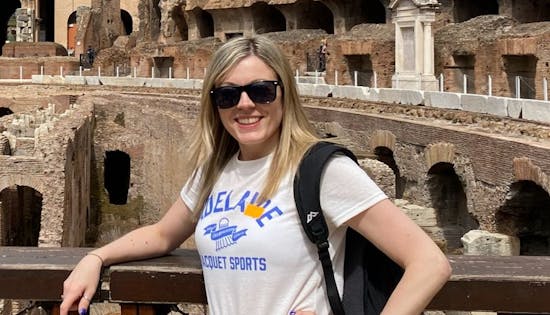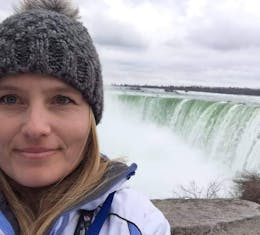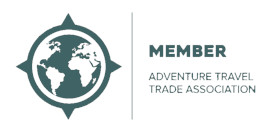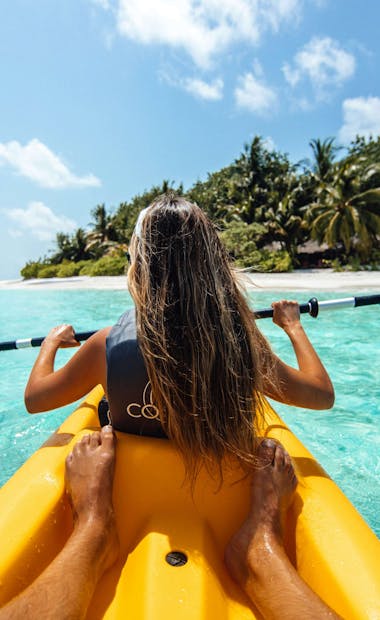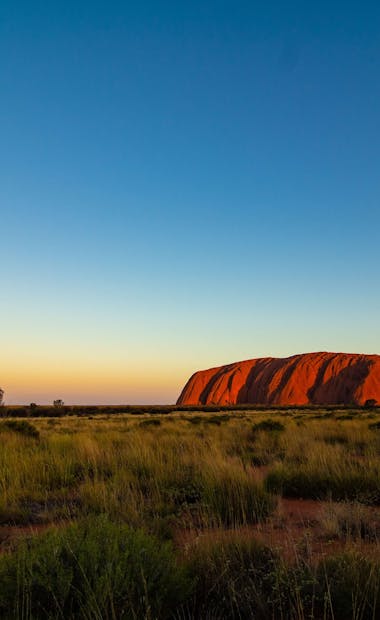
Australia 18 - Thirtysomethings Tours
Small Group Adventures For 18 - Thirtysomethings
Popular tours
- Save1%
 View Tour
View TourAustralia East Coast Highlights - 21 Days
- Sydney to Cairns
- Age group: 18 - 35
- Max group size: 24
Was:£2,440From£2,416  View Tour
View TourEast Coast Australia - 36 Days
- Sydney to Cairns
- Age group: 18 - 35
- Max group size: 24
From£3,012- Save26%
 View Tour
View TourBrisbane to Cairns Experience: Sand Dunes & the Whitsundays - 10 Days
- Brisbane to Cairns
- Age group: 18 - 39
- Max group size: 20
Was:£1,799From£1,336 - Save1%
 View Tour
View TourUltimate Sydney - 7 Days
- Sydney to Sydney
- Age group: 18 - 35
- Max group size: 30
Was:£636From£630 - Save11%
 View Tour
View TourMost of the Coast: Sydney to Cairns - 16 Days
- Sydney to Cairns
- Age group: 18 - 39
- Max group size: 20
Was:£2,739From£2,440 - Save1%
 View Tour
View TourMelbourne to Cairns Explorer - 50 Days
- Melbourne to Cairns
- Age group: 18 - 35
- Max group size: 24
Was:£4,527From£4,481
Australia 18 - Thirtysomethings
Embark on an unforgettable journey through the breathtaking landscapes and vibrant cities of Australia with our exclusive tours designed for the bold and adventurous 18-39 year olds. Whether you're a thrill-seeker, a nature enthusiast, or a culture explorer, our curated experiences promise to ignite your sense of wanderlust and create memories that will last a lifetime.
Australia, with its unique blend of captivating wildlife, awe-inspiring scenery, and buzzing urban scenes, awaits your discovery. Our tours are not just about sightseeing; they're about diving headfirst into the heart of this diverse and dynamic continent, immersing yourself in its rich tapestry of culture, history, and natural wonders.
Join like-minded explorers as we traverse the sun-kissed coasts, delve into ancient rainforests, and uncover the secrets of the vast Outback. From the iconic Sydney Opera House to the rugged beauty of the Great Barrier Reef, each destination is a chapter in the story of your Australian adventure.
Our itineraries are carefully crafted to balance thrilling activities, cultural experiences, and moments of relaxation. Whether you're surfing the waves at Bondi Beach, hiking in the shadow of Uluru, or sampling local delicacies in Melbourne's hidden laneways, our tours offer a perfect blend of excitement and relaxation for the modern traveler.
At Ultimate Adventure Down Under, we understand that your journey is not just about the places you visit but also the people you meet along the way. Our expert guides are passionate locals, ready to share their insider knowledge, ensuring you have an authentic and immersive experience at every turn.
Get ready to redefine your travel expectations and discover the essence of Australia in a way that's perfectly tailored for the 18-39 age group. Unleash your inner adventurer, make new friends, and create stories that will become the envy of your social circle.
Are you ready for the adventure of a lifetime? Explore our range of tours and start planning your Australian escapade today!
What is the best time to visit Australia?
The best time to visit Australia depends on the specific regions you plan to explore, as the country experiences diverse climates due to its size. Here are some general guidelines:
Spring (September to November): This is an excellent time to visit many parts of Australia. Spring brings mild temperatures, blooming flowers, and green landscapes. It's an ideal time for outdoor activities, and popular destinations like Sydney, Melbourne, and the Great Barrier Reef are particularly pleasant during this season.
Autumn (March to May): Similar to spring, autumn offers mild temperatures and is a great time to visit various regions. The weather is generally comfortable, and you can enjoy outdoor activities without extreme heat. Autumn is a good time to explore cities, coastal areas, and national parks.
Summer (December to February): This season varies across the country. In the southern regions (e.g., Sydney, Melbourne), summer can be hot, with temperatures occasionally reaching high levels. It's a popular time for beach activities, festivals, and outdoor events. However, northern areas (e.g., Queensland) experience the wet season during summer, bringing heavy rainfall and tropical storms.
Winter (June to August): Winter in Australia is generally mild, especially in the northern parts. Cities like Sydney and Melbourne experience cooler temperatures, while regions like Queensland remain warmer. Winter is a good time for exploring the Outback and central areas, as the temperatures are more moderate.
Consider Special Events: Check the calendar for special events and festivals. Depending on your interests, you might want to plan your visit around events like the Sydney Festival in January, the Melbourne Food and Wine Festival in March, or the Vivid Sydney light festival in May/June.
Ultimately, the best time to visit Australia depends on your preferences and the specific experiences you're seeking. Be sure to research the weather conditions for the specific regions you plan to visit and consider any events or festivals that might enhance your travel experience.
.
Do I need a Visa to visit Australia?
Yes, most travellers to Australia need a visa to enter the country. The type of visa you require depends on various factors, such as the purpose of your visit, your nationality, and the length of your stay. Here are some common types of visas for visitors to Australia:We can help, please make contact and we ensure you receive the right visa for your travels.
Will I require any vaccinations to visit Australia?
Australia does not generally require specific vaccinations for entry, unless you have recently been in a yellow fever risk country. However, health regulations and requirements can change, and it's essential to check the most up-to-date information before your trip.
Despite not having strict entry vaccination requirements, it's advisable to ensure that routine vaccinations are up to date. These may include measles-mumps-rubella (MMR), diphtheria-tetanus-pertussis, varicella (chickenpox), polio, and influenza.
Additionally, you may want to consider vaccinations based on your personal health, the areas you plan to visit within Australia, and any potential health risks. For example, if you plan to explore rural or remote areas, it's a good idea to be aware of the presence of diseases like Q fever or Ross River virus, which are transmitted by animals and mosquitoes, respectively.
It's recommended to consult with your healthcare provider or a travel health clinic several weeks before your trip to discuss your specific health needs and receive personalized advice. They can provide information on vaccinations, health precautions, and any travel health alerts relevant to your itinerary.
Keep in mind that health and travel regulations can change, and it's crucial to stay informed with the latest updates from reliable sources such as the World Health Organization (WHO), the Centers for Disease Control and Prevention (CDC), and the Australian Department of Health.
What should I pack for my trip to Australia?
Packing for a trip to Australia will depend on the specific regions you plan to visit, the time of year, and the activities you have in mind. Here's a general packing list to help you prepare for your trip:
1. Clothing:
- Lightweight, breathable clothing for warm weather.
- A mix of short-sleeved and long-sleeved shirts.
- Comfortable walking shoes or hiking boots if you plan on exploring nature.
- Swimsuit, especially if you'll be near the coast or visiting the Great Barrier Reef.
- Hat, sunglasses, and sunscreen for sun protection.
- A light jacket or sweater for cooler evenings, especially in southern regions during winter.
2. Outdoor Gear:
- Depending on your activities, consider bringing camping gear, snorkeling/diving equipment, or hiking gear.
- Insect repellent, especially if you're visiting tropical areas.
3. Travel Essentials:
- Passport and visa documents.
- Travel insurance details.
- Any necessary medications and a basic first aid kit.
- Power adapter suitable for Australian outlets.
- Portable charger for electronic devices.
4. Electronics:
- Camera or smartphone for capturing memories.
- Binoculars for wildlife watching, especially in natural reserves.
5. Toiletries:
- Toiletries, including a travel-sized shampoo, conditioner, and toothpaste.
- Personal hygiene items and any prescription medications.
- Wet wipes and hand sanitizer.
6. Miscellaneous:
- Lightweight daypack for day trips.
- Travel guidebook and maps.
- Reusable water bottle.
- Snacks for on-the-go.
7. Weather-Appropriate Items:
- Rain jacket or poncho, especially if visiting during the wet season.
- Cold-weather gear if traveling to southern regions during winter.
8. Optional Items:
- If you're planning to camp, a compact tent and sleeping bag.
- Snorkeling gear if you plan to explore coral reefs.
- Beach towel or travel towel for convenience.
Before you pack, check the weather forecast for the specific regions and time of year you'll be visiting. This will help you tailor your clothing and gear to the local conditions. Also, consider the activities you have planned, as Australia offers a wide range of experiences, from city exploration to outdoor adventures in diverse landscapes.
What is the currency in Australia and how can I access my money?
The official currency of Australia is the Australian Dollar (AUD). Here are some tips on accessing and managing your money while in Australia:
1. Currency Exchange:
- You can exchange your home currency for Australian Dollars at banks, currency exchange offices, or at the airport. Banks often provide competitive rates, but it's advisable to compare rates to get the best deal.
2. ATMs:
- Australia has a widespread network of ATMs, making it convenient to withdraw cash. Check with your bank about international withdrawal fees and inform them about your travel dates to avoid any issues with your card.
3. Credit and Debit Cards:
- Credit and debit cards are widely accepted in Australia, especially in urban areas. Visa and MasterCard are commonly used, and American Express and Discover may be accepted at some places. Inform your bank about your travel plans to avoid any potential card blocks.
4. Travel Money Cards:
- Consider using a travel money card, a prepaid card that allows you to load money in multiple currencies. It's a convenient and secure option, and you can use it like a debit card. Check for any fees associated with loading and transactions.
5. Mobile Payments:
- Mobile payment options like Apple Pay, Google Pay, and Samsung Pay are becoming increasingly popular in Australia. Ensure that your smartphone's payment app is set up and linked to your preferred payment method.
6. Currency Conversion Fees:
- Be aware of currency conversion fees and international transaction fees that may apply when using your credit or debit card abroad. It's advisable to choose a card with favorable terms for international use.
7. Carry Some Cash:
- While cards are widely accepted, it's a good idea to carry some Australian cash, especially when traveling to remote areas or places where card payments may not be accepted.
8. Safety Measures:
- Keep a record of your card numbers and emergency contact information in a secure location. Consider using a money belt or concealed pouch to protect your valuables.
Before your trip, check with your bank or financial institution to understand their policies regarding international transactions, fees, and card usage in Australia. Additionally, inform them about your travel plans to avoid any security concerns that may lead to your card being blocked.
Is Australia safe destination?
Australia is generally considered a safe destination for travelers. The country has a low crime rate, and the vast majority of visits are trouble-free. However, like any destination, it's essential to be aware of potential risks and take common-sense precautions. Here are some safety tips for traveling in Australia:
Personal Safety:
- Australia is known for its friendly and welcoming locals. Exercise normal precautions and be aware of your surroundings, especially in busy urban areas.
- Use common sense and take standard safety precautions, such as securing your belongings and being cautious in crowded places.
Natural Hazards:
- Australia is prone to natural hazards such as bushfires, floods, and tropical cyclones. Stay informed about local conditions and follow advice from authorities, especially if you are traveling to regions susceptible to these events.
Wildlife:
- Australia is home to unique and sometimes dangerous wildlife. Be cautious in natural environments, particularly in areas where there may be snakes, spiders, or marine creatures. Follow local advice to minimize risks.
Health Precautions:
- Australia is generally free from major health risks, but it's still important to take standard health precautions. Stay hydrated, use sunscreen, and be aware of any health advisories or vaccination requirements.
Road Safety:
- If you plan to drive, be aware that Australians drive on the left side of the road. Follow traffic rules and be cautious in rural areas where wildlife may pose a hazard on the roads.
Emergency Services:
- Australia has well-developed emergency services. The national emergency number is 000 for police, fire, and ambulance services. For non-urgent assistance, you can contact local police stations.
Water Safety:
- If you're enjoying Australia's beaches, be aware of water safety. Swim between the flags at patrolled beaches, and follow safety guidelines to avoid strong currents and marine hazards.
While Australia is generally safe, it's always advisable to stay informed about local conditions, adhere to travel advisories, and take appropriate precautions based on your activities and the regions you plan to visit. As with any travel destination, personal responsibility and awareness contribute to a safe and enjoyable experience.
How do I meet everyone in the group?
You'll meet everyone face to face on day one, typically meeting in your accommodation reception or bar at 18:00 but this can differ. The guide will be there too to provide some information and help with everyone getting to know one another.
How does rooming work?
Small group tours in Australia typically involve a set itinerary where you travel with a group of fellow travellers and a tour leader/guide. Accommodation arrangements vary depending on the specific tour you choose. Here are some common aspects of rooming arrangements on small group tours:
Shared Rooms: In order to promote camaraderie and facilitate interaction among group members, most tours arrange shared accommodation. This means you will be paired with another member of the same gender from the group to share a room. Roommates may sometimes change periodically throughout the tour.
Single Supplement: If you prefer to have your own room and privacy, you may have the option to pay a single supplement fee. This additional fee allows you to have your own room for the duration of the tour. However, please note that single supplements can vary in cost and availability.
Roommate Matching: Tour operators usually offer roommate matching services, where they try to pair you with a suitable roommate based on your preferences, such as age range. This can help ensure compatibility and a more enjoyable experience for all participants.
Rooming Preferences: When booking your small group tour, it's important to communicate your rooming preferences to the tour operator. If you have specific requirements or preferences, such as sharing with a friend or a specific roommate request, it's advisable to inform the tour operator during the booking process.
It's important to carefully read the tour details and inclusions provided by the tour operator to understand their specific rooming policies. If having your own room is a priority, make sure to inquire about the availability of single supplements and any associated costs before booking your tour.
Keep in mind that while sharing a room with a fellow traveller can be a great way to meet new people and build connections, having your own room provides more privacy and flexibility. Consider your preferences and the dynamics of the tour when deciding whether to opt for a shared room or pay for a single supplement.
Remember to communicate your needs and preferences clearly with the tour operator during the booking process to ensure a comfortable and enjoyable accommodation experience on your small group tour in Australia
Is the guide with us all the time?
When you're travelling then typically yes and for activities too. During free time the guide will not be with you but is always contactable.
What is the food like in Australia and are vegetarian food options available?
Australia offers a diverse and vibrant culinary scene that reflects its multicultural population. You can find a wide range of food options, from traditional Australian dishes to international cuisines. Here's an overview of the food scene in Australia, including vegetarian options:
1. Traditional Australian Cuisine:
- Meat Pies: A classic Australian comfort food, meat pies are filled with minced meat and savory gravy.
- Damper: A type of traditional Australian bushbread, often enjoyed with butter or golden syrup.
- Pavlova: A popular dessert made of meringue, whipped cream, and fresh fruits.
2. Seafood:
- Given its extensive coastline, Australia is known for its fresh seafood. Barramundi, prawns, oysters, and fish and chips are popular choices.
3. International Cuisine:
- Australia's multicultural population has contributed to a rich tapestry of international cuisines. You can find excellent Italian, Thai, Chinese, Indian, and Middle Eastern restaurants, among others.
4. Vegetarian and Vegan Options:
- Australia caters well to vegetarians and vegans, especially in urban areas. Many restaurants offer diverse vegetarian and plant-based options.
- Vegetarian burgers, salads, pasta dishes, and stir-fries are commonly available.
- In major cities like Sydney and Melbourne, you'll find vegetarian and vegan specialty restaurants and cafes.
5. Cafes and Coffee Culture:
- Australians take their coffee seriously, and the café culture is prevalent. You can enjoy a variety of coffee options, and many cafes offer vegetarian and vegan snacks and meals.
6. Farmers' Markets:
- Explore local farmers' markets for fresh produce and artisanal products. These markets often feature a range of fruits, vegetables, cheeses, and baked goods.
7. Indigenous Cuisine:
- In some regions, you may have the opportunity to try Indigenous Australian cuisine. Bush foods such as kangaroo, emu, and native fruits are featured in some dishes.
Whether you're a meat lover or a vegetarian, you'll find plenty of delicious options in Australia. The country's diverse culinary landscape caters to a variety of tastes, and you can explore a mix of traditional and contemporary dishes during your visit. In larger cities and popular tourist destinations, vegetarian and vegan options are readily available, and chefs often accommodate dietary preferences.
Why book with The Adventure People?
Why book with The Adventure People?
You may be thinking ‘why should I book with The Adventure People?’. Here are just some of the reasons we stand out:
The Best Value
Not only are our prices usually the best in the market but our leading service coupled with the financial protections we offer mean you won’t find better value anywhere else.
Your Dedicated Travel Expert
Our travel team is the best in the business and we’re not just saying that. The moment you make an enquiry we’ll pair you with your own dedicated expert who is on hand to answer your questions, look after your booking and make sure you have a fantastic time.
No Waiting Times
We only have one phone number with no automated services. When you contact us you’re straight through to a member of our team and a human!
Financial Protection
We are ATOL certified, members of ABTA and run a Trust account for our packages ensuring you’re fully financially protected.
Flexible Payments
We offer low deposits and monthly payment plans at no extra cost.
Flights
We can add flights to any trip you book with us and we’re happy to help with Round The World tickets!
Accommodation
We work with wonderful accommodation providers and our team can quote almost any hotel in the world at the best prices.
Transfers & Extras
We can easily add airport transfers or extras to any booking. Our team will always quote the best possible price and be able to update your booking.
Book With Confidence
Monthly Payments
Spread the costs with no interest or additional fees
Best Price Guarantee
We won't be beaten on price. If you find this adventure at a lower price please get in touch!
Reserve now & pay later
Reserve your adventure today and pay later, free of charge
ATOL protected
Book with confidence
Hold your space today, for free
or book your trip with a deposit and then pay the rest in instalments.
Reserve your flights with us
Add flights to your booking and we'll take care of the rest. You'll get 24/7 support from our team & ATOL protection.
Speak to our experts
Call or email our expert team to find out more and help with ideas and planning.
